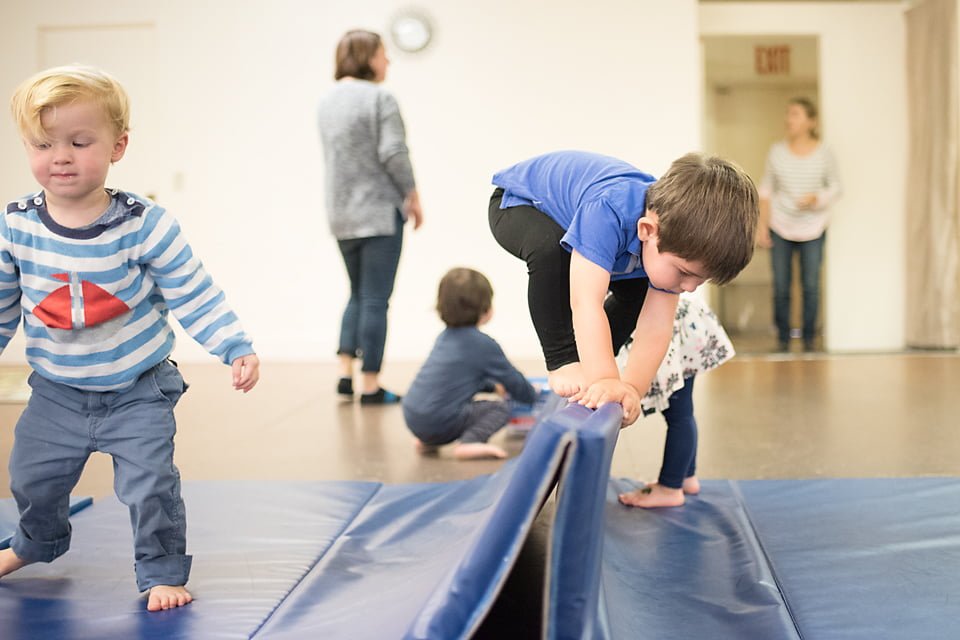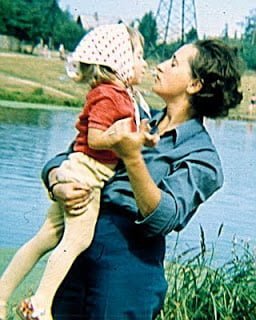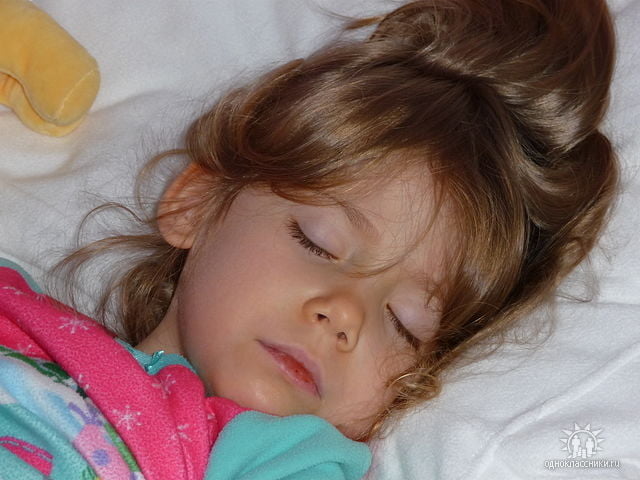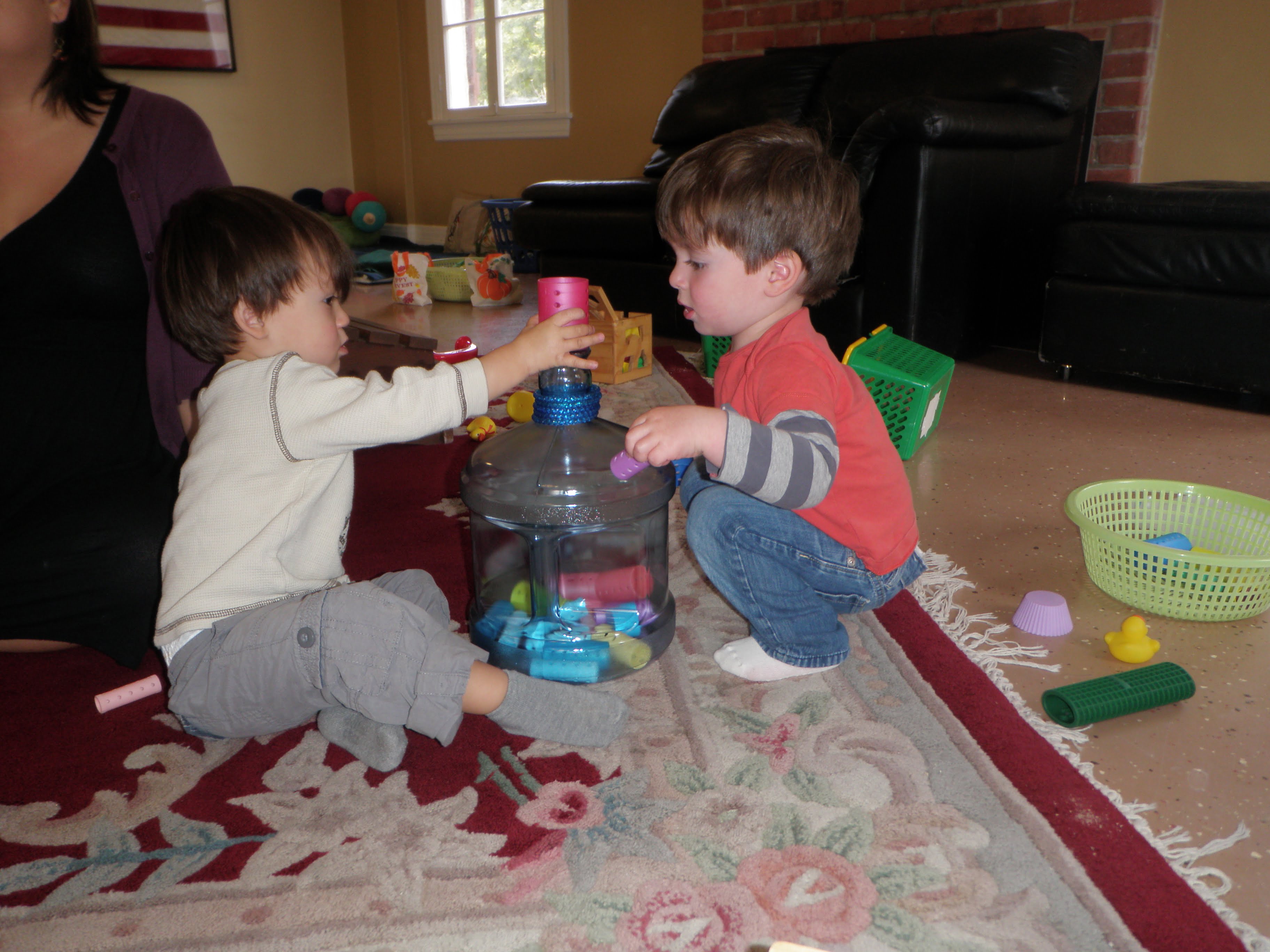Babies and toddlers are eager to move and explore; they are also learning about balance, equilibrium, and how to get up and down. Children will fall down and it is actually more safe not to prevent every fall they experience. If you observe your child pulling up, or climbing and you feel unsafe about it – do move closer and be ready to spot (catch the child).
How can we respond when our child has already fallen and we weren’t right there close by?
1. Slowly move closer
If the child falls in a relatively safe area (there is no broken glass or cars nearby) move towards your child slowly. Take a deep breath while you’re going there (calm yourself down).
Say that you saw or heard the fall.
2. Get on the same level
Kneel down or even lay down next to the child. When the child goes out of balance and his body changes position from upright to horizontal we don’t want to pick up the child right away, back to an upright position. The child feels disoriented. Give the child a moment to see and feel what’s going on. Often children cry not so much from the pain, but from the scary experience of losing their balance and going from an upright position to the ground, so we don’t want to add to another stress by bringing them up fast.
After that, if your child needs a hug and more comfort from you – you can gently pick him up.
3. Narrate what happened
Narration supports recovery in this situation because the child is trying to understand what happened and integrate the information with his emotions. The child feels empowered by that knowledge.
“Oh, Susie you were moving backward and didn’t see the edge” Touch the edge with your hand. “You didn’t see that.”
Often children will “talk” about it or choose to “replay” this situation by going to the edge touching it or even softly bumping their head again. This is how they make sense of what happened.
4. Acknowledge whatever feelings the child has
Try not to project your feelings – observe how your child is really feeling after the fall.
There are situations when they may be okay and ready to go back to play. If not say something like, “Ouch, it really hurts….” Pause. “It must be scary to fall backward…”
What the child might learn from this experience:
1. Sometimes scary things happen – I can fall.
2. All feelings are acceptable. I don’t need to pretend to be okay – I don’t need to pretend to not be hurt or scared.
3. I can share my feelings with my parents. They will listen to me and understand.
4. My parents trust me and my feelings.
If you need more information, email or call me for RIE® Parent-Infant Guidance™ Classes.
Wishing you all the best in this difficult yet exciting journey of parenting!
Warmly,
Teacher Kira














